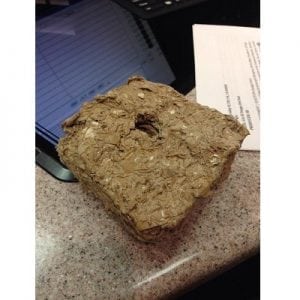
Agriculture
December 27, 2023
El Fuego del Sol Recycled Briquettes
Read SolutionImplemented by
El Fuego del Sol

Updated on December 27, 2023
·Created on October 5, 2018
The Turbococina is a biomass-burning steel cookstove that integrates an electric fan to regulate air and fuel gas flow.
The Turbococina is a forced-draft wood-burning cookstove and it is the first practical application of the “Pressurized Combustion and Heat Transfer Process and Apparatus” designed and patented by Salvadoran inventor René Núñez Suárez. The license holder for the technology is the Swiss-based company Soter AG.
Target SDGs
SDG 7: Affordable and Clean Energy
SDG 3: Good Health and Well-Being
Market Suggested Retail Price
$140.00
Target Users (Target Impact Group)
Household, Community
Distributors / Implementing Organizations
Tecnologías Ecologicas Centroamericanas (TECSA) is the entity responsible for the stove's final assembly and distribution. However, the Salvadoran Ministry of Education, the Fondo de Inversión Social para el Desarrollo Local (FISDL), the Fundación Salvadoreña para el Desarrollo Económico y Social (FUSADES), the United Nations World Food Programme (WFP), and the United Nations Development Programme (UNDP) are implementing organizations of the Turbococina in El Salvador.
Competitive Landscape
Direct competitors include Estufa Palermo, Ecostufa, ONIL Stove, and Chispa Hogar.
Manufacturing/Building Method
Batch-manufactured
Intellectural Property Type
Patent
User Provision Model
Users can obtain the product directly from Tecnologías Ecológicas Centroamericanas (TECSA).
Distributions to Date Status
Exact number unknown. However, by 2013 approximately 1,200 stoves were donated to public schools as a joint initiative with the Ministry of Education in El Salvador. At the moment TECSA planned to scale up the dissemination of the Turbococina up to 3,500 schools and 120,000 households through its carbon financing project.
Fuel type
Biomass, wood
Chimney (yes/no)
No
Forced or passive
Forced
Pot type
Flat or round bottom
Pot capacity (L)
30 L
Thermal efficiency (%)
93%
PM emissions (g/MJ delivered to pot)
Unknown
CO emissions (g/MJ delivered to pot)
Unknown
Time to boil (min/L)
Unknown
Design Specifications
The Turbococina is completely made of stainless steel in the shape of a cylinder which contains an internal disk with ten air injectors and two 15 – Watt internal axial fans. The entry and exit of air are regulated with a steel plate. The stove is designed to obtain a heating power of 3.2 Kilowatts with a wood consumption at a nominal power of approximately 800 grams/hour. The stove is mounted on a carbon steel table covered with white paint. The pot capacity is 30 L.
Technical Support
Provided by Tecnologías Ecológicas Centroamericanas S.A, de C.V.
Replacement Components
Provided by the manufacturer.
Lifecycle
40 years
Manufacturer Specified Performance Parameters
Manufacturers specify an average savings of wood between 90% and 95%, for which they state a reduction in both respiratory diseases caused by smoke and deforestation caused by the collection of firewood. At the same time, the use of the Turbococina reduces the time spent collecting wood and the reliance on imported fossil fuels for cooking.
Vetted Performance Status
The United Nations under its Clean Development Mechanism stated that the usage of the Turbococina had the following associated benefits:
Safety
The safety concerns associated with the usage of wood-burning cookstoves are primarily related to carbon dioxide, carbon monoxide, and sulfur dioxide emissions. Another significant safety concern is domestic accidents such as accidental burning or spill-overs. Regarding the use of this product, the manufacturer recommends:
Complementary Technical Systems
The stove requires an external power supply. A plancha can be placed on top of the stove to cook up to 12 tortillas simultaneously.
Academic Research and References
Hahm, M., & Pratson L., 2010, An Environmental and Financial Analysis of Improved Stove Projects in Guatemala (Unpublished master’s thesis). Nicholas School of Environment of Duke University.
Northcross, A.L., Smith K.R., & Hernandez, M.T., 2012, TURBOCOCINA Field Assessments in Schools: San Lorenzo. Household Energy, Health, and Climate Change Research Group. UC Berkeley School of Public Health.
Wang, X., Franco, J., Masera, O., Troncosco, K. & Rivera, M., 2013, What Have We Learned about Household Biomass Cooking in Central America?. Washington DC.
Soter AG & Tecnologias Ecologicas Centroamericanas SA de CV | the Partnership for Clean Indoor Air. n.d. pciaonline.org.
Suarez, René Maurico Nunez. n.d. Pressurized Combustion and Heat Transfer Process and Apparatus.
Suarez, René Núñez . 2010. Turbococina Manual de Uso. Edited by Marlon Iván Méndez , Ulises Emmanuel García, and Sol Cardenal. Proyectaryproducir.com.ar. San Salvador: Impresos Múltiples, S.A. de C.V.
CDM: ‘Turbococinas’, Rural Cooking Stove Substitution Program in El Salvador. n.d. cdm.unfccc.int.
AMS-II.G.: Energy Efficiency Measures in Thermal Applications of Non-Renewable Biomass — Version 9.0. n.d. cdm.unfccc.int. CDM.
CDM: Up Energy Improved Cookstove Programme, Uganda. 2011. cdm.unfccc.int. CDM.
Masera, Omar, Adrian Ghilardi, Rudi Drigo, and Miguel Angel Trossero. 2006. WISDOM: A GIS-Based Supply Demand Mapping Tool for Woodfuel Management. Biomass and Bioenergy 30 (7): 618–37.
Compliance with regulations
Complies with all relevant UNFCC requirements for the Clean Development Mechanism.
Evaluation methods
Baseline and monitoring methodology AMS-II.G “Energy efficiency measures in thermal editions of non-renewable biomass”, version 05. C-WISDOM: A GIS-based supply-demand mapping tool for woodfuel management.
Other Information
None

Agriculture
December 27, 2023
Implemented by
El Fuego del Sol
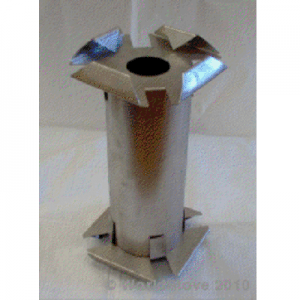
Agriculture
December 31, 2023
Implemented by
WorldStove
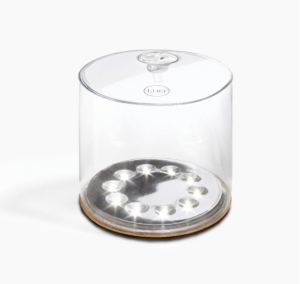
Agriculture
January 14, 2024
Implemented by
MPOWERD
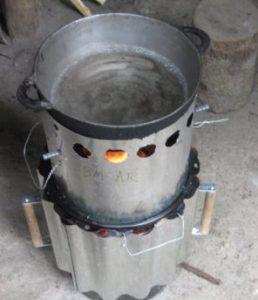
Agriculture
December 29, 2023
Implemented by
SeaChar
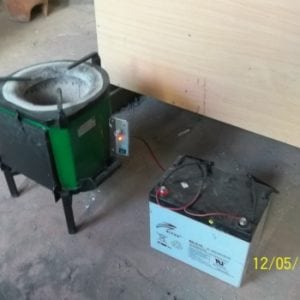
Agriculture
December 29, 2023
Implemented by
Sustainable Community Development Services (SCODE)
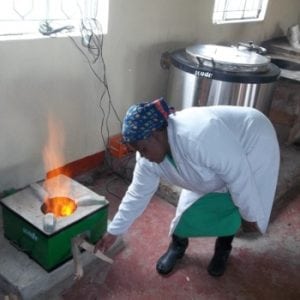
Agriculture
December 29, 2023
Implemented by
Sustainable Community Development Services (SCODE)
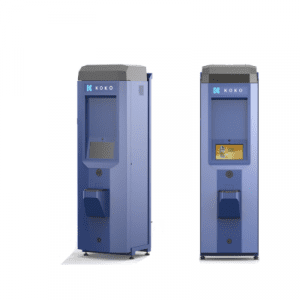
Agriculture
December 27, 2023
Implemented by
KOKO Networks
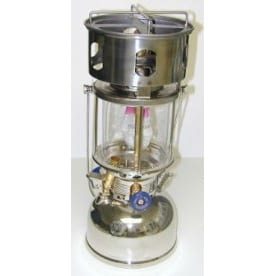
Agriculture
December 27, 2023
Implemented by
BriteLyt
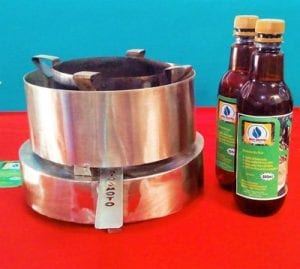
Agriculture
December 31, 2023
Implemented by
International Research & Development Africa Ltd
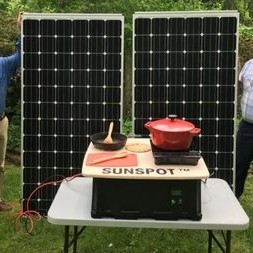
Agriculture
January 27, 2024
Implemented by
Sunspot PV LLC
Have thoughts on how we can improve?
Give Us Feedback